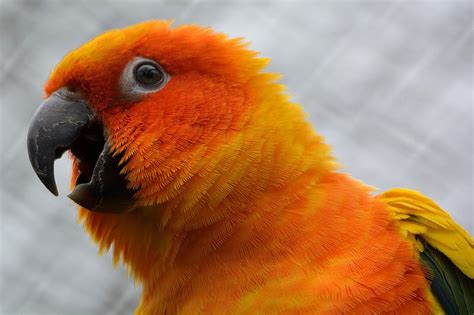The Key to a Happy, Perched Parrot: Understanding Your Feathered Friend's Needs
Parrots are intelligent, social creatures known for their vibrant plumage and captivating personalities. Owning a parrot is a rewarding experience, but it requires a significant commitment to understanding and meeting their complex needs. A happy parrot is a healthy parrot, and a healthy parrot is a joy to be around. This article delves into the key elements of providing optimal care for your feathered friend, ensuring a long and fulfilling life together.
What Makes a Parrot Happy? The Basics of Parrot Care
Before we dive into specifics, it’s crucial to understand the fundamental pillars of parrot happiness: a stimulating environment, a balanced diet, regular veterinary care, and plenty of social interaction. Neglecting any of these areas can lead to behavioral problems, health issues, and a generally unhappy bird.
Providing a Stimulating Environment: More Than Just a Cage
Simply providing a cage isn't enough. Parrots need a stimulating environment that mimics their natural habitat as much as possible. This includes:
- Spacious Cage: The larger the cage, the better. A cramped cage leads to frustration and stress. Consider the size of your parrot; larger species require significantly more space.
- Variety of Toys: Parrots are intelligent and need mental stimulation. Provide a variety of toys, rotating them regularly to prevent boredom. Toys should encourage chewing, climbing, foraging, and problem-solving.
- Perches of Varying Sizes and Textures: Different perches help prevent foot problems and provide variety. Natural wood perches are preferable to plastic ones.
- Safe Play Area: Allowing your parrot supervised time outside its cage in a parrot-proofed area is crucial for exercise and enrichment.
Addressing Specific Parrot Needs: Food, Health, and Social Interaction
Beyond the basics, let's address some key areas that significantly impact your parrot's happiness and well-being:
What Should I Feed My Parrot? A Balanced Diet is Essential
Nutrition plays a vital role in a parrot's health and happiness. A diet solely consisting of seeds is inadequate. A balanced diet should include:
- High-Quality Pellets: These are formulated to provide a complete nutritional profile.
- Fresh Fruits and Vegetables: Offer a variety of options daily.
- Occasional Treats: Small amounts of healthy treats can be given sparingly.
- Avoid: Processed foods, chocolate, avocado, caffeine, and alcohol.
Regular Veterinary Check-ups: Preventing Problems Before They Arise
Just like any pet, regular veterinary check-ups are essential. Early detection of health problems can significantly improve your parrot's quality of life. A veterinarian specializing in avian medicine is ideal.
Social Interaction: The Importance of Bonding
Parrots are highly social animals and need interaction with their human companions. Spend quality time with your parrot daily, talking to it, playing with it, and providing affection. Ignoring your parrot can lead to depression and behavioral issues.
Common Parrot Behavior Problems and Their Solutions
Understanding common behavioral issues can help you address them effectively and prevent escalating problems.
My Parrot is Plucking its Feathers. What can I do?
Feather plucking is a common problem often stemming from stress, boredom, or underlying health issues. Addressing the root cause through environmental enrichment, increased interaction, and a veterinary check-up is crucial.
My Parrot is Screaming Excessively. How Can I Stop This?
Excessive screaming is often a sign of boredom, lack of attention, or frustration. Providing mental stimulation, regular interaction, and addressing any underlying health concerns are important steps to take.
How Can I Train My Parrot?
Positive reinforcement training is the most effective method. Reward desired behaviors with treats and praise, and avoid punishment. Consistency and patience are key.
By understanding and addressing these key factors, you can provide your parrot with a happy, healthy, and fulfilling life. Remember, owning a parrot is a long-term commitment, but the rewards of having a healthy, well-adjusted companion are immeasurable. Consult with avian veterinarians and experienced parrot owners for personalized advice tailored to your specific parrot's needs.

